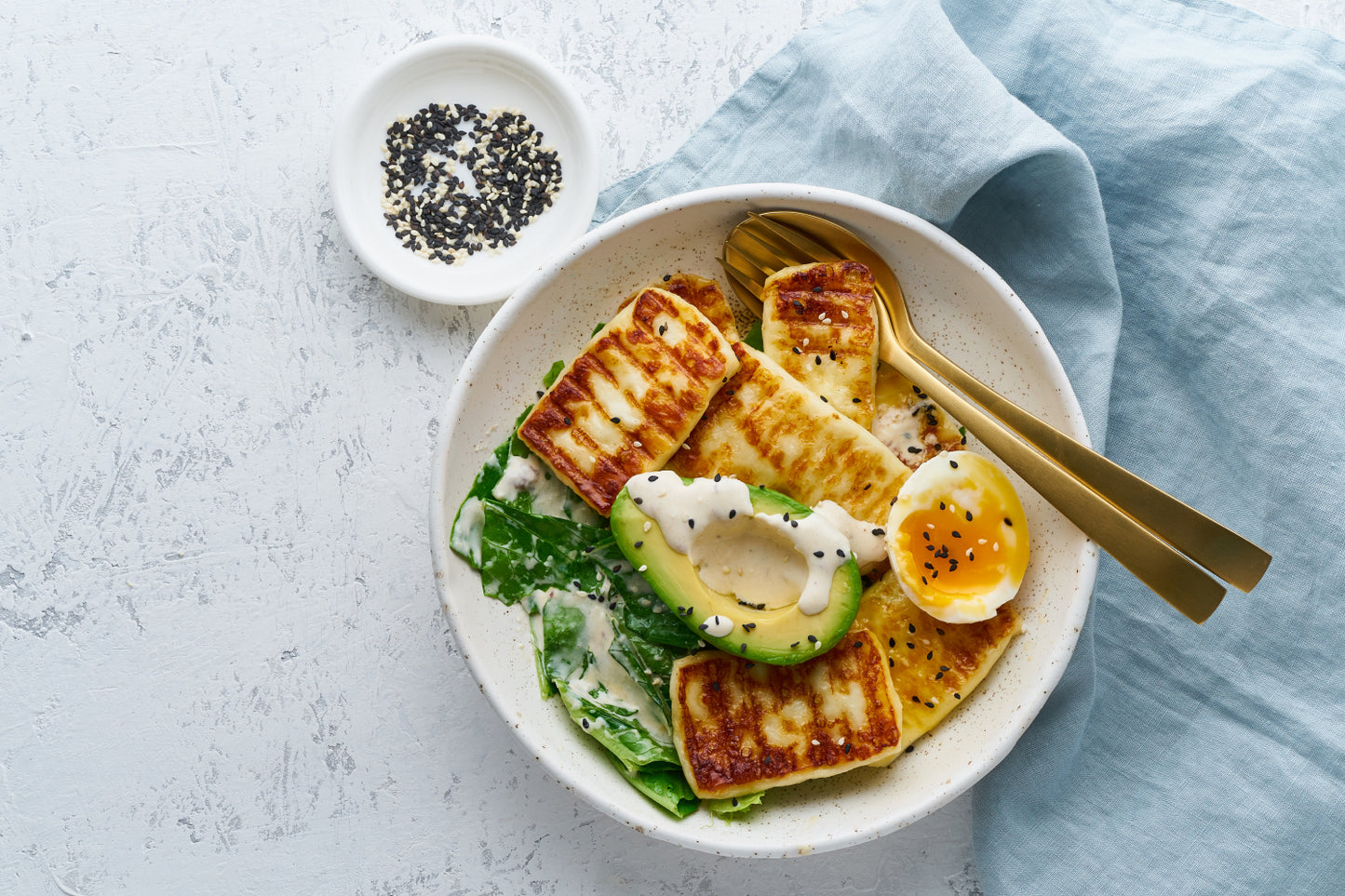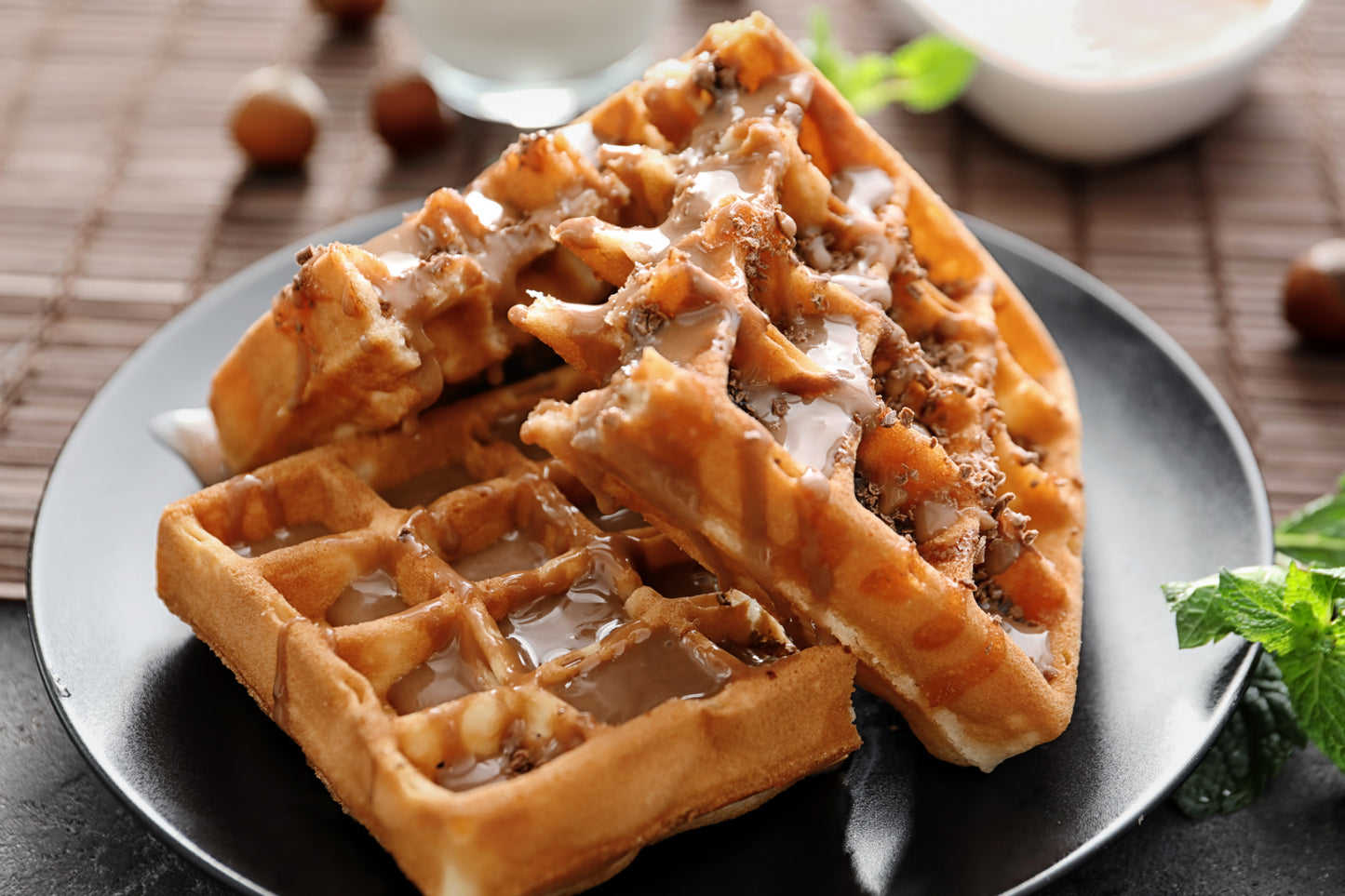
Collagen for Weight Loss: How Does It Work?
Every weight loss journey is different and requires different approaches for each person. After all, we’re all unique and have varied wellness needs. But there are still everyday things that bring us together.
Take collagen as an example: this protein is an underrated yet vital part of the body. Collagen is not only a required part of our overall health but has also shown promising results in many people’s weight loss journeys.
Collagen does so much more than support a youthful complexion. The other benefits of collagen can also include joint support, digestive support, and weight loss support.
And with several ways to obtain collagen naturally or with a supplement, there are also plenty of ways to see the benefits of collagen for weight loss and beyond.
What Is Collagen?
There are several types of protein in the human body, but collagen is the top dog. Collagen is an essential protein comprising many amino acids and is distributed throughout the body.
Thirty percent of the body’s protein is provided by collagen, so it’s kind of important (as in, the-primary-protein-in-the-body important). Without it, your body couldn’t maintain strong ligaments, tissue, muscles, or bones.
The body has five collagen types (Type I, Type II, Type III, Type IV, and Type V). Some are made naturally in the body, and others are supported by a healthy diet and exercise. All five are distributed throughout the body’s ligaments, blood vessels, joints, and tendons.
What Are Some Natural Sources of Collagen?
When we’re young, the body can produce collagen naturally, especially when we incorporate a healthy diet and exercise regimen into our daily routines. As we age, though, we’ll need to start supplementing that collagen production.
At age 30, we can begin to see and feel signs of diminishing collagen production, such as wrinkles, joint pain, and hair loss. After 60, collagen production is severely lacking, which can cause the appearance of aging and other age-related health concerns.
A collagen-supportive diet consists of chicken, fish, egg whites, leafy greens (like kale and spinach), fruit (like oranges, grapefruit, lemons, etc.), and nuts (like pistachios and cashews).
Many of these foods are also part of the keto diet, which promotes high levels of protein intake and encourages the body to use fat instead of carbohydrates as the main energy source. The paleo diet also incorporates many of the same foods that support collagen levels.
It’s also important to eat plenty of vitamin C, as the body needs vitamin C in order to produce this vital protein.
How Can Collagen Help With Weight Loss?
Does collagen help weight loss? When we start a weight loss plan, momentum is vital. Once you start losing weight through a healthy diet and routine, it’s easier for the body to let go of excess weight without being afraid you’ll deprive it of nutrition.
There are several ways collagen can help with weight loss and weight management, including satiety (keeping cravings and hunger away). There are also additional benefits that can support your overall health from head to toe.
It Helps You Feel Full
A common reason why people overeat or accidentally consume more calories than they should is that no matter what they eat, they still feel hungry.
Without nutritious meals, the body will demand more food, hoping you will give it what it needs. Unfortunately, many of us rely on processed snack foods devoid of nutrition, adding calories without other valuable sustenance to keep the body happy and full.
You can feel a much longer sense of satiety with high-protein meals or supplements than you might with processed foods or unhealthy snacks. This can help you cut your overall calorie count, as well as support your nutritional goals.
Kicks the Cravings
Some people struggle to stick to a diet because they miss the foods they often crave before beginning the diet. It’s hard to be healthy when you’re constantly reminiscing on the salty taste of chips and missing that late-night ice cream.
This may not be completely due to a lack of self-control. If you have a hormonal imbalance or a disruption in the appetite centers of the brain, you may be more susceptible to cravings than other people. It can be even harder for menstruating women.
Cravings can be broken into two types: selective and nonselective. Selective cravings are responsible when you specifically want to drive out to the nearest fast-food restaurant and grab a large order of fries. Nonselective is the general feeling of hunger that persists, even when you’ve eaten a meal.
But when you feel satisfied with your meals, you won’t need to eat your go-to processed food favorites. You can successfully resist the urge to snack when you feel full!
Common foods that support collagen levels, such as seeds and nuts, can be a great alternative to your typical snack foods.
If it’s early in your weight loss journey, try swapping out unhealthy, processed snacks and meals with nutritious alternatives. With the right recipes, healthy meals can taste good enough to forget all about those potato chips.
Rich in Amino Acids
Certain amino acids, especially branch-chained amino acids, support muscular and metabolic health.
There are 19 amino acids in collagen, all used to make the body’s cells and building blocks. Not only do they maintain your body’s structure, but they can also support your body’s energy levels so you feel ready to take on the next exercise challenge.
Supports Connective Tissue
If you experience frequent joint discomfort, then you may not have enough collagen to support your connective tissues.
Collagen makes up 80 percent of ligaments and tendons, meaning that even slightly lower collagen levels can cause discomfort and even develop into more severe problems.
Collagen supplements can help support joint health, which can also help you exercise and build muscle mass without working out around an uncomfortable joint.
It May Promote Lean Muscle Mass
Aging means losing out on muscle mass, but that doesn’t have to be permanent! Several studies suggest that higher natural collagen levels can support muscle maintenance, particularly in men. Lean muscle mass takes up less space and can help you burn more calories from simply having more muscle.
Collagen is an essential part of any muscle, as one of the primary building blocks used to help muscle maintain its structure.
Support Hair, Skin, and Nail Health
Want stronger and smoother hair, skin, and nails? When your body has enough collagen to go around, you may notice youthful and healthy-looking skin, nails, and hair.
As collagen levels decrease, you may notice wrinkled, crepey skin, age spots, and hair loss. External signs of aging can start as early as age 30 but largely depend on your genetics (which cannot be controlled) and overall health (which can be controlled!).
For stronger hair, collagen may protect against damage from toxins that enter the body, meaning they won’t be able to attack hair follicles. Collagen can also protect your skin and nails to help you keep that youthful appearance.
Want to slow down the appearance of gray hairs? Collagen’s makeup makes it a great defender against the free radicals that can attack melanin (pigment) cells. Less free radical damage can mean the appearance of fewer gray hairs — and fewer gray hairs can mean fewer expensive trips to the pricey hair salon!
Collagen is also a vital component of skin elasticity, which is what helps your skin bounce back from age and damage. By supporting your natural collagen production, you can encourage skin elasticity to help you minimize the appearance of fine lines and wrinkles.
Plus, collagen can also support gut health by supporting the intestinal lining. Since gut health and skin health are connected, collagen can help encourage a youthful glow from the inside out.
How Can You Increase Collagen Intake?
If diet alone isn’t doing it and your body’s natural collagen production is decreasing with age, there are a few ways you can increase your daily collagen intake, from delicious meals to dietary supplements.
The best part is that collagen supplements or natural collagen intake methods don’t typically have side effects, so you can try them without worry. Here are some of the best collagen supplements and sources.
Bone Broth
An ancient drink with modern health benefits! The gelatin found in bone broth is an excellent source of collagen. The best part about bone broth is its versatility — it can be used as a soup, as a drink, or as a mix to add to comforting meals.
If you make your own bone broth, you’ll need leftover animal bones and tissue to boil in purified water and six hours of your time. The longer you boil the bones, the more nutrients you gather.
There are also prepackaged bone broths that are easy to heat up and take wherever you go.
Dr. Kellyann’s Powdered Bone Broth is made from slow-cooked animal bones and contains plenty of nutrients that holistically support the body’s health. With several delicious flavors, you’ll never be bored. Simply add water, and you’re ready to take on the day.
Collagen Powder Supplements
Powder supplements can be added to recipes without you even noticing a difference. Some come in flavors like vanilla or chocolate, while others are unflavored for a discreet boost of collagen in your favorite meals.
Mix collagen powder with a smoothie or make it part of a protein-packed dip that you can snack on with carrots or fruit. You can even dust it over any of your favorite meals.
Try our Collagen Protein Powder, which is made of pure bovine protein, for an unflavored and undisruptive addition to your daily meals. This highly-concentrated formula can help provide the benefits of collagen while still fitting into your diet.
Capsule Collagen Supplements
As easy as taking your daily vitamin, adding a capsule collagen supplement is quick and effective. You can purchase collagen supplements at the drugstore or through health and wellness sites.
Evaluate each supplement before purchasing it to ensure you’re getting the best quality! Not all types of collagen are created equal. That’s why we use only high-quality grass-fed bovine collagen in our powders and shakes and formulate our products without any fillers.
There are also many forms of collagen that are used to make supplements. Some supplements may feature collagen peptides or collagen hydrolysate, while others may feature liquid collagen or marine collagen.
When choosing a collagen supplement, make sure you work with the advice of your healthcare provider to make sure you choose a supplement that will work for your health needs.
Collagen for Weight Loss: The Bottom Line
Collagen is essential for fully-functioning joint and muscular health, but it also has additional benefits, like its ability to support skin and nail quality. It may also help the body lose weight by supporting lean muscle building and preventing diet-destroying cravings.
Increasing your collagen intake is as easy as making minor changes to your diet, whether in the foods you eat or choosing to include supplements in your daily regimen.
Want more information about how collagen can revamp your weight loss goals? Read more on Dr. Kellyann’s blog to explore how bone broth and collagen supplements can contribute to your health and wellness.
Sources:
Collagen: What it is, Types, Function & Benefits | Cleveland Clinic
Decreased Collagen Production in Chronologically Aged Skin | PMC
Physiological Adaptations to Weight Loss and Factors Favouring Weight Regain | PMC







